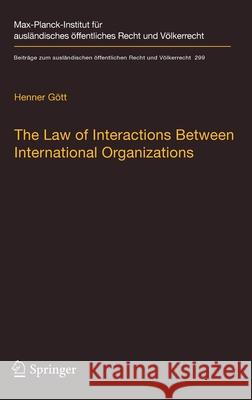The Law of Interactions Between International Organizations: A Framework for Multi-Institutional Labour Governance » książka
topmenu
The Law of Interactions Between International Organizations: A Framework for Multi-Institutional Labour Governance
ISBN-13: 9783662623886 / Angielski / Twarda / 2021 / 526 str.
The Law of Interactions Between International Organizations: A Framework for Multi-Institutional Labour Governance
ISBN-13: 9783662623886 / Angielski / Twarda / 2021 / 526 str.
cena 644,07
(netto: 613,40 VAT: 5%)
Najniższa cena z 30 dni: 616,85
(netto: 613,40 VAT: 5%)
Najniższa cena z 30 dni: 616,85
Termin realizacji zamówienia:
ok. 22 dni roboczych.
ok. 22 dni roboczych.
Darmowa dostawa!
Kategorie:
Kategorie BISAC:
Wydawca:
Springer
Seria wydawnicza:
Język:
Angielski
ISBN-13:
9783662623886
Rok wydania:
2021
Wydanie:
2020
Numer serii:
000833953
Ilość stron:
526
Waga:
0.95 kg
Wymiary:
23.39 x 15.6 x 3.17
Oprawa:
Twarda
Wolumenów:
01
Dodatkowe informacje:
Wydanie ilustrowane











